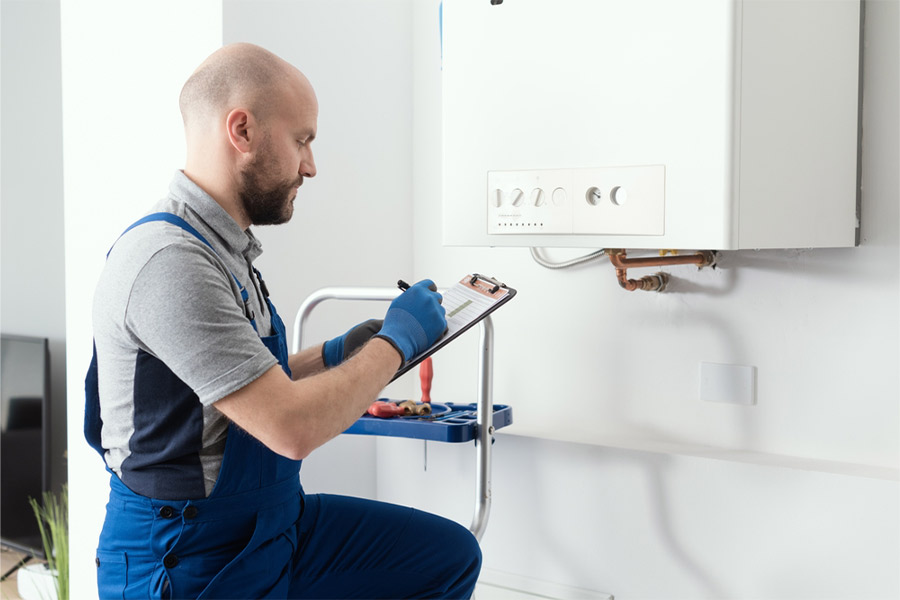
17 Aug 10 essential certificates Landlords must be aware of for the safety of their tenants and property
Safety is a top priority in the world of property rentals. Before welcoming in your tenants, it’s essential to have all of the required safety inspections and certificates in order. Within this blog, we present you with a comprehensive overview of the crucial safety certificates that every responsible landlord should possess. These certificates play a vital role in safeguarding the welfare of both tenants and the property, and not having some of them could result in hefty fines for the landlord.
We are the leading estate agents in Colnbrook so if you are looking to buy or sell in the area, or you are a landlord or looking to rent in the area and have any questions, make sure to give us a call on 01753 683000 or email us.
10 essential safety certificates every landlord should familiarise themselves with:
- Proof of Deposit Protection
Tenant deposits warrant meticulous protection within a government-approved tenancy deposit scheme (TDP), a responsibility that must be fulfilled within 30 days of receiving the deposit. This mechanism ensures that tenant funds remain secure until the conclusion of the tenancy. Furnish tenants with clear information about the chosen TDP scheme, including contact details and the procedure for reclaiming their deposit. Neglecting to provide this substantiation could result in penalties and legal consequences.
- Gas Safety Certificate
Gas appliances can pose inherent risks if not properly managed. As a landlord, it’s your legal duty to schedule an annual inspection by a registered Gas Safe engineer. This comprehensive inspection covers all gas appliances, chimneys, ducts, and fittings. Upon completion, the engineer will furnish you with a CP12 certificate, detailing the comprehensive checks conducted to validate the safety of gas appliances. Remember, it’s imperative to furnish your tenants with a copy of this certificate within 28 days of inspection, and annually thereafter. September 11th-17th marks the national Gas Safety Week, now in its 13th year. The aim of this week is to raise awareness about the dangers of gas in the home.
- Electrical Safety Certificate
Electrical safety stands paramount for your property. A certified electrician will conduct an Electrical Installation Condition Report (EICR) to comprehensively assess your property’s electrical installations, which encompass fuse boxes, light fittings, plug sockets, wiring, and permanent fixtures such as air conditioning units. This certificate ascertains that your property adheres to prevailing safety standards. It’s recommended to renew this certificate every 5 years, or sooner if advised by the electrician. Distribute the electrical safety report to existing tenants within 28 days, and provide new tenants with a copy at the outset of their tenancy.
- Energy Performance Certificate (EPC)
An Energy Performance Certificate (EPC) holds mandatory status for all rental properties. This certificate grades your property’s energy efficiency on a scale ranging from A (most efficient) to G (least efficient). Without achieving a minimum grade of E, you’re unable to lease your property. In addition to energy ratings, the EPC provides actionable suggestions for bolstering efficiency. Keep in mind that the EPC remains valid for a decade, and it’s incumbent upon you to supply tenants with a copy prior to their move-in.
- Legionella Risk Assessment
Protecting against Legionnaires’ disease necessitates a thorough Legionella Risk Assessment. This evaluation pinpoints potential water-related risks and mandates adherence to specified safety measures. Uphold the maintenance of water systems by implementing temperature controls, regular flushing, and the removal of superfluous pipes. While a test certificate isn’t legally mandated, it’s prudent to share the assessment with your tenant prior to their occupancy.
- Fire Safety Assessment
Although no dedicated fire safety certificate exists, landlords must place fire safety at the forefront. Install functional smoke alarms on each floor and carbon monoxide alarms in rooms furnished with solid fuel-burning appliances. Ensure that all alarms are operational prior to the commencement of any new tenancy. Upholstery and furniture must adhere to fire safety regulations, particularly in accordance with the Furniture and Furnishings Fire Safety Regulations 1988. For HMOs, the provision of fire extinguishers augments safety measures.
- Carbon Monoxide Alarm Certificate
Landlords are required to install carbon monoxide alarms in any room with a solid fuel-burning appliance (e.g, wood-burning stoves, coal fires). While this doesn’t necessarily entail a separate certificate, it’s crucial to have documentation that verifies the installation and functionality of these alarms. Keeping records of when they were installed and tested can help demonstrate your commitment to tenant safety in case of any inquiries or audits.
- Portable Appliance Testing (PAT) Certificate
If your rental property is furnished with electrical appliances provided by the landlord, such as kettles, toasters, or microwaves, it’s recommended to have these appliances tested for electrical safety. A qualified electrician can perform Portable Appliance Testing (PAT) to ensure these appliances are safe for use. While not a legal requirement in all cases, having a PAT certificate can demonstrate your dedication to tenant safety and reduce the risk of electrical accidents.
- Smoke and Fire Alarm Test Records
While not certificates per se, maintaining records of regular testing and maintenance for smoke alarms and fire alarms is crucial. Regular testing and record-keeping help show that you’re actively ensuring the functionality of these safety devices. This can be especially important in case of any fire-related incidents or inspections.
- HMO Licensing Certificate
If you’re renting out a property that qualifies as a House in Multiple Occupation (HMO), you may need an HMO license from your local council. The requirements for HMO licenses vary by region, but having a valid HMO license is essential for compliance and tenant safety in these types of properties.
Regulations and requirements change based on location and updates in housing laws. It’s always a good idea to consult with your local authority, a legal advisor, or a property management professional to ensure you’re up-to-date with all the necessary certificates and legal obligations for your specific property.
If you are concerned about any of the safety aspects of your property, whether you’re a landlord, homeowner or a tenant, and would like some advice from our team, please do not hesitate to contact the office today.
Contact Us
If you would like to speak to someone about your property, or if you are considering buying a property to let or renting a property, we are the leading independent estate agents in Colnbrook. So, contact us on 01753 683000 or email us. You can also follow us on Facebook, LinkedIn and Instagram.

